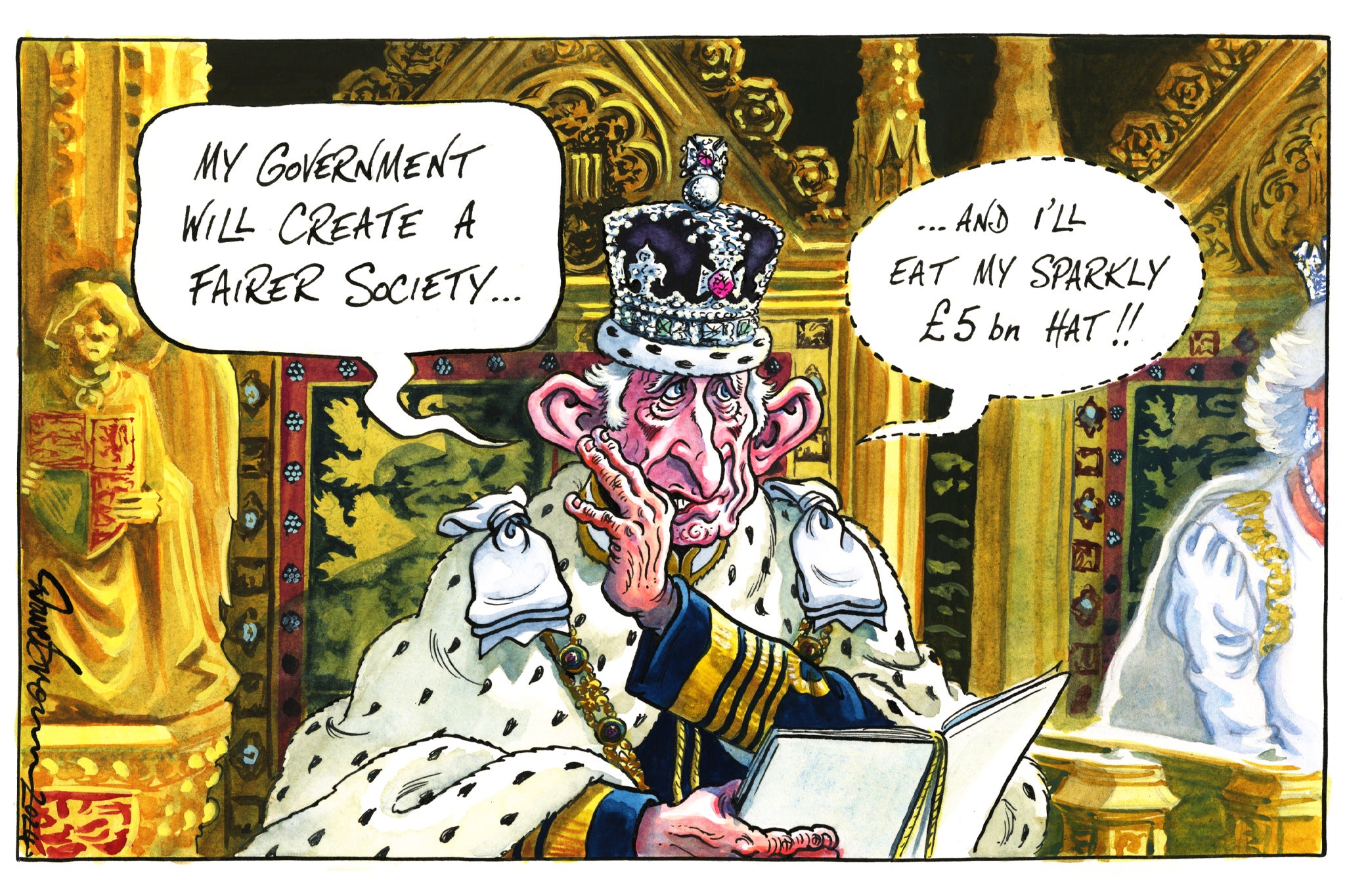Generation Z will benefit most from Labour’s return to government
Editorial: The reforms contained within this ambitious King’s Speech are aimed squarely at those who have been abandoned to a rental housing market stacked against them

The sheer breadth and ambition of Labour’s first legislative programme in almost 15 years make a mockery of the claims, made so often during the general election and before, that there is little difference between the major parties – or, indeed, much point in voting.
At least in terms of stated intent, the 40 bills in the King’s Speech mark a break with the past and, as a brief inspection for the diverse and (relatively) youthful members of the new House of Commons attests, the legislative torch has passed to a new generation. The contrast with the last set of proposals from the Conservative government – meagre, gimmicky, performative and designed so often to trigger yet more tedious battles in our unending culture wars – could not be greater.
“Change” is what Sir Keir Starmer promised, what he won the election on – and what, it seems, he is now embarked upon, armed with what has been termed a supermajority.
Above all, this is a King’s Speech for a generation – for Generation Z, which has been treated harshly by its elders and, to borrow a hackneyed phrase, left behind. The plan to build 1.5 million new homes, including council housing, and the series of important reforms for renters and leaseholders should relieve what has been (and is still) one of the biggest contributors to homelessness, poverty and the cost of living crisis.
It hardly needs to be said that habitable, affordable housing is the most basic of requirements for a stable family life and all that that entails for health, happiness and the future of a nation’s children. Future historians will ponder just how it came to be that Britain made such a modest demand as a roof over one’s head come to be something of a luxury.
Some of the reforms in housing, it must be admitted, have been carried over from the previous government’s agenda; but what has been so badly lacking in boosting the supply of new homes for many years is planning reform. That should now be decisively changed, alongside the restoration of housing targets.
If there was nothing in the King’s Speech except for a measure to end no-fault evictions that would be cause enough for celebration; but there is, potentially, much more than that to follow. It bears repeating: families in their twenties, their thirties and even older, have demanded of their new rulers decent housing, and this new government will have to provide it – or, when the time comes, find itself punished as badly as the Conservatives have been.
The other prerequisite for an acceptable standard of living is, for many, a well-paid job – and again, the King’s Speech carries the promise of better times, principally through the commitment to building stability into the public finances and economic management, and the priority given to growth. Only in a world of ample training and job opportunities do improvements in workers’ rights make much sense.
For a country that felt nothing was working, other solutions are on the table: a slow, creeping nationalisation of the railways; strengthening the water regulator; returning bus service regulation to local authorities; stronger community policing; cheaper, greener energy; raising educational standards; modernising the mental health laws; and an impressive promise to halve violence against women and girls.
There is much, then, to do, as Labour embarks on what it hopes will be a “decade of renewal”. Crises and black swan events will test the character of the ministerial team and the resolve of the governing party. Mistakes will be made. Even this early in the process, the incoming government should be careful to ensure that well-meant reforms in the rental market and on the minimum wage do not fall foul of that most awkward piece of legislation, the law of unintended consequences.
We cannot know what wars, pandemics and economic crises may face the world. An early parliamentary rebellion, on child benefits and the two-child cap, has been averted but the question will return. Because of the assurance that a protest vote can’t bring the government down or defeat a measure, a huge majority can be more difficult for the whips to manage than a hung parliament. That too will stretch the skills, as well as the patience, of Labour’s top team. Reforms in social security and the NHS – declared, but not yet specified – will be especially painful to drive through parliament.
For now, though, the sun is out and the sense of momentum and of “getting Britain building” is welcome and palpable. Nearly five years ago, a Conservative government led by Boris Johnson was elected with a substantial majority and a similar sense of hope, even adventure. The promise to “unleash Britain’s potential”, for whatever reason, never seemed like it was going to be fulfilled. This time, if the public’s trust is to be rewarded, things will have to be different.



Join our commenting forum
Join thought-provoking conversations, follow other Independent readers and see their replies
Comments